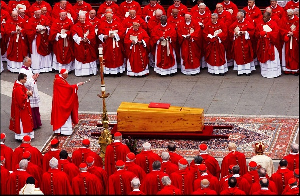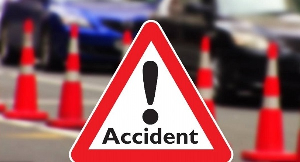Accra, July 12, GNA - The VAT Service on Tuesday urged the National Executive of the Ghana Traditional Caterers Association (Chop Bar Operators) to ask their members to voluntarily register and collect the tax.
In a statement issued in Accra in reaction to threats by chop bar operators to withdraw their services in solidarity with the proprietress of Good Mark Foods in Sunyani, Mrs Josephine Brobbey, who is to appear in court for failure to register for VAT, the VAT Service said registration by chop bar operators did not amount to double taxation. The National Executive of the Association had said that it would exert all efforts to compel the VAT Service to abandon its idea of registering its members since that would mean double taxation.
"It is apparent that the stand taken by the Ghana Traditional Caterers Association (GTCA) arises from a misconception of the nature and incidence of VAT vis-a-vis income tax.
"It is important to state that VAT is a consumption tax charged to the consumer by the VAT registered business."
The VAT Service said unlike income tax collected by Internal Revenue Service (IRS), which was paid by businesses on their income, the incidence of VAT fell on the consumer as the VAT registered businesses were merely agents of collection.
"Therefore, there is no issue of double taxation so far as the two different taxes are concerned."
The VAT Service said it had observed that some providers of catering services operated as chop bars but provided all the facilities available in restaurants and only hid under the guise of chop bars to avoid registration to collect the tax.
"It is on record that a number of chop bars in the Brong Ahafo Region and other parts of the country with lower patronage and sophistication have registered for VAT and are collecting the tax."
The VAT Service stated that the only way it could mobilize sufficient resources for national development was by all sectors of the economy making contributions to national revenue in an equitable manner. It cited the collection of the GETFund and National Health Insurance Levy, which were meant for improvement in education and health respectively.
Business News of Tuesday, 12 July 2005
Source: GNA












